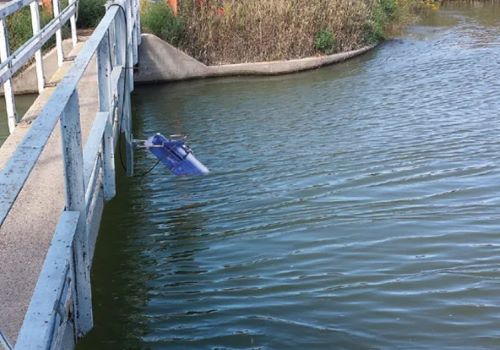

Water flow sensors are vital elements in a range of industrial settings, upholding operational efficiency and safety protocols. They are key in delivering data on flow rates, which facilitates enhancement and effective resource allocation. Understanding their importance can drive productivity and cost-effectiveness across industries. Efficiency is key for any industrial operation, and water flow sensors can bring about valuable additions. This article explores why water flow sensors are important for industrial use.
Precise Surveillance
In all manner of industries, it is important to monitor the flow of water in order to keep operations running smoothly and consistently. Water flow sensors are highly effective in providing up-to-date data in time, enabling adjustments as required. This function guarantees that ideal conditions are upheld, thereby minimizing the chance of interruptions to operations. Additionally, sensors offer insights that help in detecting leaks or obstructions to prevent expensive damages. No matter what the use case, the LaserFlow Non-contact Water Velocity Sensor is a good option.
Sustainable Use of Natural Resources
Managing resources effectively continues to be a focus for industries looking to reduce waste and save money. Water flow sensors play a role in achieving this objective by providing information on water usage patterns. By studying the data collected from these sensors, industries can pinpoint areas where water is being used excessively or inefficiently. This data equips decision-makers with the insights needed to develop conservation strategies that support sustainability efforts and drive cost savings.
Boosting Efficiency
Efficiency is key to staying competitive in industrial environments. Sensors that monitor water flow are essential for improving overall processes as they offer measurements of flow rates. Ensuring control over water flow movements can enhance the quality of products and decrease wastage. By incorporating these sensors into automated systems, businesses can boost efficiency and output levels significantly, especially in the long run.
Safety Measures and Adhering to Regulations
Safety is a priority in industrial settings. In such spaces, water flow sensors play a crucial role in enhancing safety measures by keeping an eye on important factors that could signal possible dangers ahead of time. Regular notifications from these sensors prompt solutions to prevent risks linked to machine breakdowns or environmental dangers. Carrying out quick responses with the help of sensor data also aids in effortlessly meeting requirements and maintaining compliance with safety protocols.
Ensuring Equipment Protection
Anticipatory maintenance tactics heavily depend on data to anticipate equipment problems before they worsen in severity. Water flow sensors offer insights that aid in anticipating maintenance requirements. By examining patterns and irregularities in water flow rates, businesses can plan maintenance tasks in advance to minimize downtime and prolong the lifespan of machinery. This method cuts costs and boosts operational dependability.
Facilitating Process Automation & Insights
In a time when making decisions based on data is crucial for achieving success in business operations and planning strategies, water flow sensors play a role in providing valuable information and insights. It can help decision-makers enhance their understanding of the situation and make informed choices for improvements in operations and future plans within their industries. They can do so by analyzing trends and assessing performance to drive growth and encourage innovation with the added advantage of quick access to real-time data for increased agility and flexibility.
Minimizing the Effects on the Environment
Industries frequently encounter obstacles when it comes to maintaining sustainability practices. Water flow sensors mitigate these effects by encouraging the more efficient use of water. With precise measurement and continuous monitoring of water consumption levels, businesses can lower their impact on the environment. This proactive strategy is in line with the aim of safeguarding natural resources and plays a constructive role in corporate social responsibility endeavors.
In Summary
Water flow sensors are important for more than measuring purposes. They play a vital role in ensuring precise monitoring of resources and processes efficiency while also enhancing safety measures and environmental protection efforts, which only highlight their significance beyond mere data collection tasks. Embracing the use of these sensors in operations and management practices can result in enhancements in performance and sustainability outcomes for industries. In the evolving landscape of business sectors today, the incorporation of advanced sensor technologies is becoming increasingly essential to achieve sustainable long-term objectives effectively.


